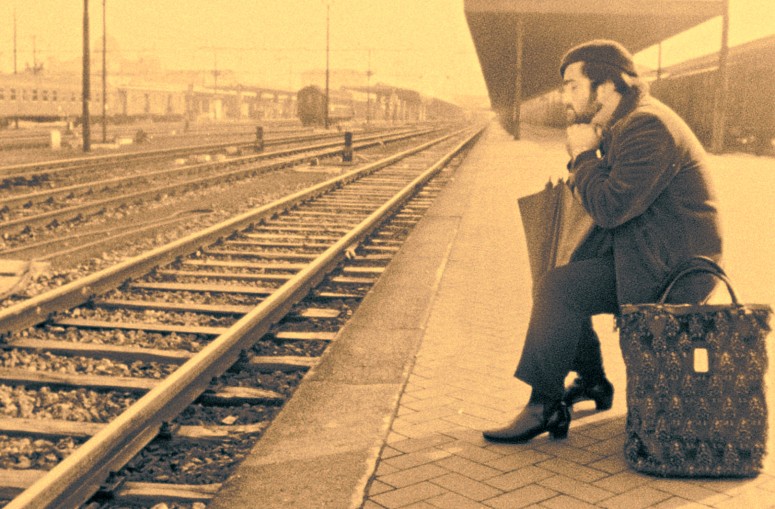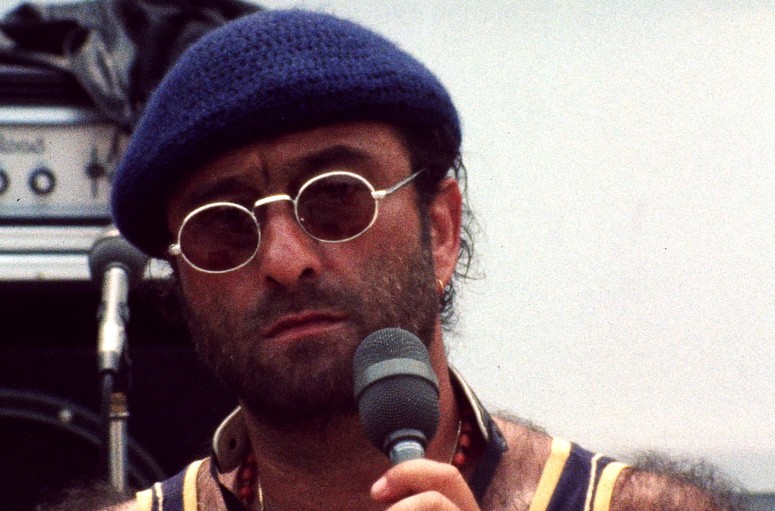Berlinale Review: For Lucio (2021)
Berlinale Special

Lucio Dalla © Teche Rai 
Lucio Dalla © Teche Rai
The life and artistic work of the Italian singer-songwriter Lucio Dalla would serve as a picture-perfect topic for a documentary made with festivals, national and international awards in mind. Born in war-time Bologna, Dalla was the immediate witness of the post-war shifts in lifestyle powered by the industrialization and urbanization that have hit his home town and the rest of the country. Those shifts and the social issues arising from them were the source of the inspiration for his songs and highly conceptual albums. On the personal life level, Dalla would also be interesting as a celebrity who spent all his life as a closeted gay man that did not dare to come out albeit witnessing the trends of liberalization regarding the stance the society takes towards gay people.
Fortunately, the director Pietro Marcello, fresh from the international success with his adaptation and re-contextualization of Jack London’s novel Martin Eden, had different things in mind. And he managed to frame the variety of interconnected topic and a very ambitious structure of his documentary For Lucio in a very compact format of just under 80 minutes of runtime. For Lucio premiered at Berlinale Special programme which is notorious for its love for the music- and arts-themed documentaries.
For Lucio mainly consists of different archival footage like newsreels and film clips that are more associated with Dalla’s music and inspiration for it, making a statement that Dalla was at his best when chronicling and commenting on the trends in the Italian society. However, the “talking head” part could not be avoided, but the trick of the script Marcello co-wrote with Marcello Anselmo is that it mainly provides the context of Dalla’s life and work and not some raw biographical information. In that aspect, there is less pressure on the main interviewee Umberto “Tobia” Righi, Dalla’s career-long manager and life-long friend, who can feel more free to touch the multiple topics regarding Dalla’s life and work. He talks about Dalla’s appearance that was quite the opposite of the beauty standards in an otherwise beauty-obsessed world of popular music, his decision of switching from jazz to pop music for the commercial reasons, his bon vivant lifestyle, his artistic collaboration with the poet Roberto Roversi and his unique, monumental and well-meaning presence on the scene and in the lives of his friends. The best trick in that department is, however, the twist Marcello puts exactly at the film’s half, when Tobia is joined with another of Dalla’s friends, Stefano Bonega, and their conversation about the late artist and friend gets more and more casual over the course of dinner.
Regarding the beautifully composed and masterfully edited archival footage, the stand-out is a prolonged silent movie from the iconic Mille Miglia car race. The race itself was a symbol of the glamour and craftsmanship-type of engineering in the pre-war Italy and its iconography was one of the rare things that was kept untouched even in the post-war times since it was bigger than the label of fascism. The footage of the race is accompanied by Dalla’s songs from his most conceptual album Automobili (1976) which was also revolving around the race and the years-long rivalry between the legendary drivers and car manufacturers. The sephia-coloured old footage is followed by the newsreels in colour, the glory of the race with the hardships of the automotive industry, the joy of racing with the mundane reality of making them, which all leads to the economical, social and political turmoil, riots, police brutality and the Red Brigades.
One single flaw, if it is a flaw at all, could be that For Lucio might seem scanty with the information and explanation it provides about its titular subject, but it all might as well be the part of Marcello’s plan. It is simply aimed more to the people who at least know of Lucio Dalla, his songs and his reputation. But as a film that explains his phenomenon by picturing a detailed landscape of the world he lived in, For Lucio is more than efficient.
Original title: Per Lucio
Year: 2021
Runtime: 79’
Country: Italy
Language: Italian
Directed by: Pietro Marcello
Written by: Pietro Marcello, Marcello Anselmo
With: Lucio Dalla, Stefano Bonaga, Umberto Righi, Roberto Roversi
Cinematography by: Ilya Sapeha
Editing by: Fabrizio Federico
Sound by: Marcos Molina
Music consultant: John Vignola
Colourist: Andrea Maguolo
Assistant director: Tiziana Poli
Produced by: Beppe Caschetto, Anastasia Michelagnoli
Executive producers: Giulia Moretti, Francesca Andreoli
Production companies: IBC Movie, RAI Cinema, Avventurosa
Supported by: Regione Emilia-Romagna, Emilia-Romagna Film Commission
Sales: The Match Factory
















